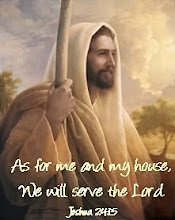Wes and I reported our missions to the Ukiah II Ward on Sunday September 12, 2010. What follows is my (Joan’s) homecoming talk.
I’m happy to be here with you this Sabbath Day. The theme is from Psalms 37 which I’ll read in a moment. I want to integrate our missionary experiences in Mongolia with this scripture.
To give you a background for our missionary experiences, Mongolia is sandwiched between Russia and China. Mongolia is slightly larger than Alaska and has less than 3 million people with half of the people living in the capital city Ulaanbaatar and the rest of the people sparsely scattered throughout the countryside. Mongolians traditionally are a nomadic people; they rely on their livestock. According to the State Dept., only 1% of their land is arable which explains why they rely on livestock instead of farming. (http://www.state.gov/r/pa/ei/bgn/2779.htm#profile)
As part of the collapse of communism, the Russians withdrew from Mongolia. In sub-zero weather in January 1990 the Mongolians held large-scale demonstrations demanding democracy. By March of that year the Russians agreed to withdraw by 1992. Their withdrawal in 1990 and 1991 along with their withdrawal of economic assistance left the Mongolian people starving; some of the people had to go back to the countryside to survive.
1992 was a pivotal year. With the withdrawal of the Soviets, Mongolia’s new constitution went into effect. The Church sent six missionary couples to Mongolia in September 1992. The Church opens missionary work in a new area with couples before they send in young missionaries.
In April of 1993 the land was dedicated by Elder Neal A. Maxwell for the preaching of the gospel. Quoting from Elder Maxwell:
“In the power and the authority of the Holy Apostleship, I dedicate the land of Mongolia and bless its leaders and people, its soil, and its sky – all to the end that the nation may be blessed, that it will so respond to the Gospel message so that Thy work may be firmly established here. May Mongolia ever be a beacon light to other nations.”
The people of Mongolia love their country and especially their countryside. They are receptive to hearing the gospel message.
The Mongolia Ulaanbaatar Mission was officially created two years after the dedication on July 1, 1995 with Richard E. Cook as president, who is now a director of the church’s Perpetual Education Fund, and his wife Mary N. Cook, who is currently the 1st counselor in the general YW presidency. Last June Elder and Sister Cook visited Mongolia, just after we left, to speak at a Youth Conference, at firesides, and to help train young men and young women leaders.
There are now approximately 10,000 members of the Church in Mongolia, about 1/3 of 1% of the population. The summer before last (2009), the mission had up to 184 young missionaries serving. With the withdrawal of almost all the young American missionaries, the number went down to around 134. Under the leadership of President D. Allen Andersen, who was our mission president, many young Mongolians received calls to serve a mission in Mongolia. Before his tenure as president, most of the missionaries were Americans. With many Mongolians serving, the mission had enough missionaries to thrive when the Americans returned home. In Mongolia there are also many sister missionaries; they feel it is as important for them to serve as it is for the young men.
In May 2009 the first stake was formed in Mongolia with President Odgerel as stake president. We were privileged to attend this event. The people were so excited. The stake was formed 17 years after the introduction of the church to Mongolia, the shortest period of time for a country in Asia from the introduction of the gospel to the formation of a stake.
With a stake came wards, ordination of high priests, and a patriarch. People were thrilled to have the privilege to obtain patriarchal blessings. Previously only people who had traveled out of the country to places like BYU-Hawaii or to serve foreign missions had been able to receive patriarchal blessings. A survey was taken of those who’d received their blessings, and it was found that all of the tribes of Israel were represented among the Mongolian people; they are part of the Lost Tribes of Israel.
Psalms 37 reads:
3 Trust in the LORD, and do good; so shalt thou dwell in the land, and verily thou shalt be fed.
4 Delight thyself also in the LORD; and he shall give thee the desires of thine heart.
5 Commit thy way unto the LORD; trust also in him; and he shall bring it to pass.
6 And he shall bring forth thy righteousness as the light, and thy judgment as the noonday.
One of the themes that was emphasized on our mission to Mongolia was keeping our covenants, consecrating our all to the Lord. Faithfully keeping our covenants is what we do when we commit our way unto the Lord.
Elder Maynes at a General Conference (October 2004) explained, “As members of the Church of Jesus Christ of Latter-day Saints, we have also taken upon ourselves sacred obligations. We have done this in the waters of baptism and in the temples of the Lord. We call these obligations covenants. Covenants are promises we make to the Lord. They are extremely sacred in nature. The most important thing we can do in this life is to keep the promises or covenants we have made with the Lord. When we keep our promises to the Lord, He allows us to progress spiritually.
Elder Maynes then proceeded to talk about examples of Filipino families and individuals who understand and keep the covenants they have made with the Lord. I wish to relate instances of how the Mongolian Saints were examples to us of those who committed themselves to the Lord.
As an example of the readiness of the Mongolian people to accept the gospel, there were several occasions when people came up to us and said they’d like to join the Church.
Each Friday was baptism night. Many people from our branches attended the baptisms. Before being baptized, investigators had to attend the entire 3-hour block for three Sundays. If the investigator was a teenager, he had to attend the 3-hour block, mutual, and seminary for 2 months. If under the age of 12, he had to attend for 4 months. The new converts at their baptismal service, after they’re baptized, are expected to stand in front of the people and bear their testimony. They have no problem in speaking in front of a large group.
Many of the members and missionaries are the only members of their family in the Church. Family members often join the Church while missionaries are serving. In a few families there are beginning to be 3 generation families with brothers and sisters and cousins as members of the Church.
A country-wide Youth Conference was held last June. For the youth to be eligible to participate, they are required to have 80% attendance at seminary. 350 youth and 100 leaders attended from all over Mongolia. It was a miracle that the youth were able to hold to the required attendance considering this past winter was a Dzud disaster with temperatures of -40 to -50 and deep snow in some areas. Seminary is held early in the morning, and the students walk to seminary in the cold and dark. In one branch the missionaries would get up early and go from ger to ger collecting students and walking them to seminary.
Khovd is 1000 miles west from the capital city Ulaanbaatar. 38 youth attended youth conference from Khovd. All our Church buildings have a guard or caretaker. One cold winter morning in Khovd, in the middle of the night, a caretaker heard a knock on the door. He wondered who was there. Two young people were standing there who had come for early morning seminary. They lived in a ger where they didn’t own a clock. They had awakened and thought it was time to go to seminary and came because they didn’t want to miss seminary or be late. It was only 3:30 in the morning.
Firesides are held for new Mongolian missionaries going to the Philippines MTC and for departing missionaries. It is only recently that missionaries who are serving in Mongolia have the opportunity to go to an MTC. When a fireside is announced in the branches, the people come and the room is packed.
There is a branch about 2 hours from UB called Baganuur which has about 100 people at church each Sunday. For District Conference last March, on a Saturday afternoon 60 adults rode into UB crowded into 3 meekers, which are large vans, to come to the meetings. After the evening meeting they rode for 2 hours back to Baganuur in the crowded meekers. Then early the next morning on Sunday they repeated the 2 hour trip each way in the crowded meekers so they wouldn’t miss any district conference meetings. The people are poor, and it was a sacrifice of money as well as time for them to come.
Last April there was a countryside choir festival held at the National Theater in UB for the entire Church in Mongolia. 650 singers participated from every branch and ward except for the 3 furthest outlying areas which held their own choir festivals. One singing group was from Bulgan, a newly opened proselyting area. There is no branch there, but the people wanted to participate. 19 people sang in the choir; there were only 3 members, but 14 investigators sang, as well as 2 missionaries. They sang 3 numbers, all memorized: Love One Another and I’m Trying to Be Like Jesus in English, and We Thank Thee Oh God for a Prophet in Mongolian.
In addition to the Mongolian Saints setting powerful examples of faithfulness, the area authorities set an example. Mongolia is part of the Asia Area with the area presidency in Hong Kong. The Asia Area has over ½ of the world’s population.
We had regular visits from the area presidency and area authorities. Elder and Sister Perkins, Elder Hallstrom (who is now a member of the 7 Presidents of 70), Elder Pratt, and Elder and Sister Watson came to visit us as well as President and Sister Goo of the Hong Kong temple presidency, Elder Jones, and Elder Ho.
Elder Pratt spoke of the covenant of consecration. The General Authorities and the Area Seventies give what the Lord asks. If they are required to travel, it is O.K.; it is part of their covenant. He said they have it easier than Brigham and Heber; Brigham and Heber didn't have Skype.
Elder Ho commented, even with his traveling on Church assignments, he always has family home evening on Sunday night. Their family's home evening is held in four locations. They get together on Skype as a group meeting. They have assignments just as they would if they were together in one location. When it is 6:30 am Sunday morning in Vancouver, Canada, it is 9:30 pm Sunday evening in Hong Kong.
These are examples of Saints committing their way unto the Lord and trusting in him (Psalms 37:5). They are covenant keepers; they are keeping their covenants to take His name upon them, always remember Him, and keep his commandments. According to Elder Hallstrom, “They are living their lives by covenant, not by convenience. Their covenants are the basis for their decisions and the direction of their lives.” In the words of Elder Christofferson (April 2009), “they are letting their covenants be paramount and their obedience exact.”
New Adventure, New Blog
12 years ago






0 comments:
Post a Comment